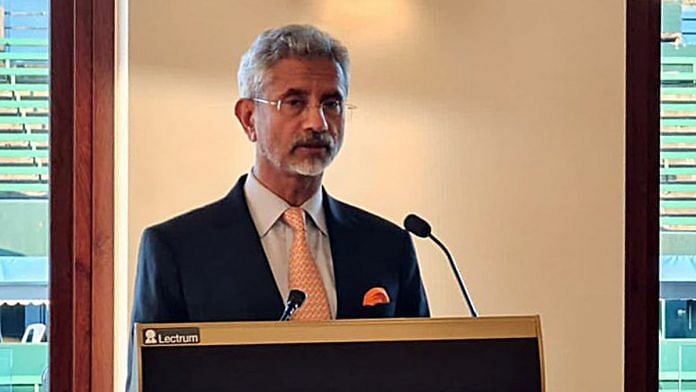On Saturday, 26 February, the United Nations Security Council met in emergency session to debate and vote on an important resolution deploring the Russian military’s brutal and unprovoked invasion of its democratic neighbor, Ukraine. Sadly, despite the overwhelming majority of nations siding with Ukraine against Russian aggression, the Indian government chose to abstain.
Whatever the calculations, misplaced loyalties, or misjudgments that fed this decision, one thing is clear: India is at risk of abdicating its position of respect as one of the world’s leading democracies.
Of course, the Russian Federation shamelessly stopped the resolution from moving forward. No surprise considering Russia is the author of this disaster. Equally unsurprising was the abstention of the People’s Republic of China, which has struggled to reconcile its own narrow, self-interest with Russia’s grotesque violations of international law.
If the votes of Russia and China were no surprise, the choice of the Government of India to side with China and give a pass to Russian aggression most certainly was. Longtime friends of India in the United States – from all sides of the political spectrum – view this as a surrender of India’s moral leadership.
Also read: Russia’s attack on Ukraine halts rocket launches, Venus mission, casts doubt on ISS fate
Similarities from the past
This moment feels eerily similar to 1980, when an Indian government opposed a UN resolution condemning the Soviet Union’s brutal invasion of Afghanistan. That equally cynical vote carried costly consequences, ending for many nations the illusion of India as a non-aligned power, and had lasting implications for relations with the United States, as the U.S. Congress cut longtime aid programmes to India. And Afghanistan fell victim to a brutal and ultimately failed Soviet invasion, the continuing legacy of which poses a lasting challenge to India’s own peace and security today.
But some things are different as well. Compared to 1980, India today proudly stands among the first ranks of global democracies. The Indian people are engaged globally in trade and investment and have built new and powerful economic and political partnerships that make India more secure, more prosperous, and a much greater stakeholder in global stability and a rules-based international order.
The United States in particular, has championed a greater role for India on the governing board of the world’s nations: by pushing through a contentious civil-nuclear deal to help India’s power shortages, by announcing that it would support India as a future permanent member of a reformed United Nations Security Council, and by encouraging its partnership as a member of the Quad. The United States and other democracies also rushed to India’s aid every time there was a need – the US alone giving over $2.8 billion since 2001, including for the 2004 tsunami response and more than $200 million last year as part of an emergency Covid-19 response. Moreover, after Chinese forces crossed the line of control in the high Himalayas in 2020, various US officials openly supported India in public statements, and the US gave India real-time access to US geo-spatial intelligence, and leased it predator drones. Other democratic countries have been equally generous and proud to stand next to democratic India.
Prime Minister Narendra Modi, for his part, proudly took the stage at the Summit for Democracy in December 2021 and called for “furthering cooperation among democracies.” He also declared in a press conference with US Vice President Kamala Harris in September 2021 that the US and India are “natural partners” and have “similar values [and] similar geopolitical interests.”
It is hard to reconcile these modern ambitions and statements with India’s actions at the United Nations this past weekend.
The world stands at the edge of a disaster. Ukraine is a peaceful, democratic nation that has been invaded by Russia. Ukrainian sovereignty is not questioned by any nation except Russia. And Russia, unwilling to accept its responsibilities under international law and treaties it signed in Helsinki, Paris and Budapest, has launched a brutal assault on its neighbour. The direction of democratic government and perhaps any hope for a stable peace in Europe for this generation all hangs in the balance.
The stakes are high, and this is not a moment for ambiguity, evasion, or equivocation.
Those guiding Indian foreign policy surely must understand that this is a fight to defend democracy from authoritarianism. These officials already know full well that the United States would speak in support of India were it similarly the victim of aggression by a larger neighbor. In such circumstances, Ukraine could unquestionably be counted on to speak out for India as well. Can the same be said about India?
Also read: How restrictions on Russia using SWIFT system can affect economy of country, rest of Europe
Another chance
Having been blocked by a Russian veto, the resolution condemning the Russian invasion of Ukraine will now move to the full United Nations General Assembly for debate and voting.
Every UN member will have an opportunity this week to be on the record, including India. This will be India’s opportunity to muster the courage to stand for its declared principles as the world’s largest democracy.
If India stands with other democracies in defiance of the Russian invasion, a powerful message will be delivered to the aggressors in Moscow, the victims of Russian aggression in Ukraine, and other authoritarian powers who may have similar designs on the territory of their neighbors.
There is still time, though not much, for the true voice of a democratic India to be heard. The world is listening.
Stephen Biegun served as US Deputy Secretary of State from 2019 -2021. Anja Manuel is Executive Director of the Aspen Strategy Group and a former US State Department Official. Views are personal.
(Edited by Anurag Chaubey)



